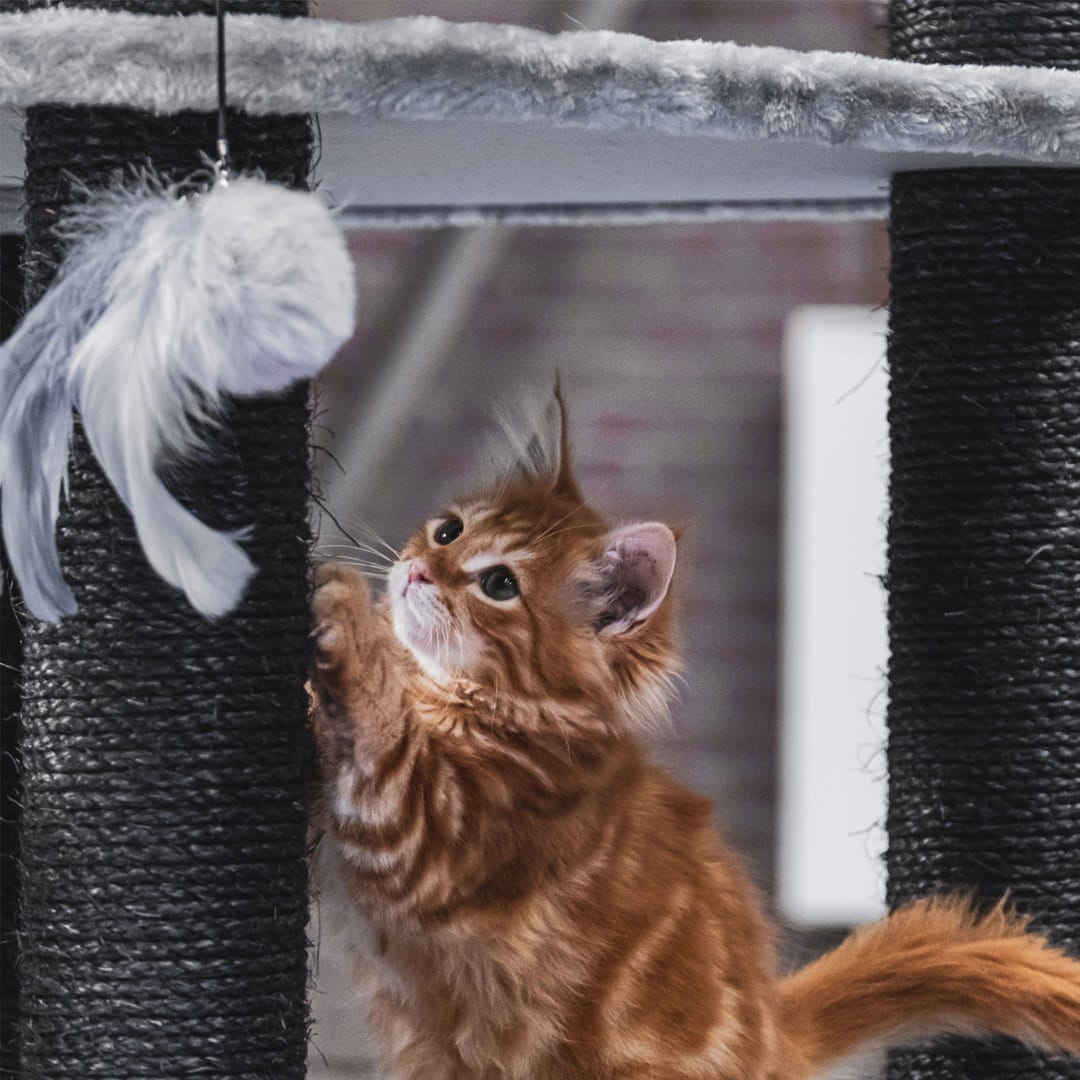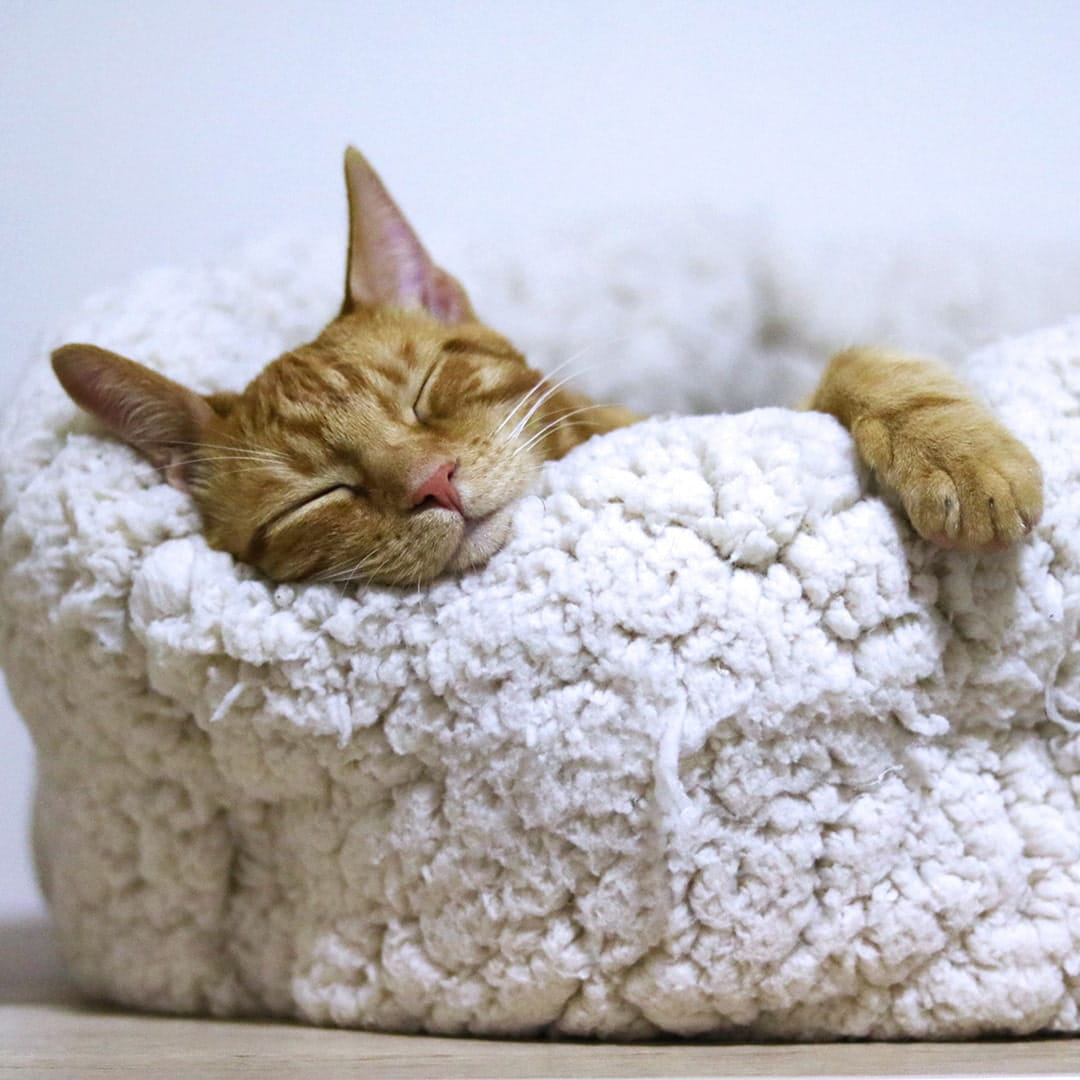What do you need to know before getting a new kitten?
Buying a new kitten checklist
The essential checklist to welcome home a new kitten
Are you planning on bringing home a new kitten? Welcoming a pet into your life is an exciting time for anyone, but especially so when you’re expecting a kitten. There’s lots of things that you need to get ready for when you’re preparing to bring home a new kitten, some of which you may have already ticked off your list! But whether you’ve owned cats before or if you’re a first-time feline owner, then we’ve got the ultimate checklist for your young kitten.
Kitten food
Kittens need specialist food to help support their growth – a kitten’s weight can double when they are only a few weeks old! You can choose to feed your kitten a diet of wet or dry food, whichever you feel is best for you.
Young kittens often have a lot more energy than an adult cat, so they need plenty of nutritious food to help them grow. For the first 4 – 8 weeks of a young kitten’s life, they should be allowed to feed whenever they’re hungry as part of the weaning process. After this, you can introduce mealtimes and get your young cat into a routine.
Register your kitten with a vet
It’s important that you get your new kitten registered with a local vet. You can pop in to your vet and get advice on what you’ll need before your kitten comes home with you. Once you’re registered, you can take your kitten in for their first check-up.
Flea treatments
As your kitten grows, they will need to be treated for fleas monthly. There are lots of different flea treatments available, including:
Toys
Kittens are very playful! Young cats are always looking for entertainment, so keep them occupied with plenty of toys. Soft, plush toys are a big hit with young kittens but you don’t need to break the bank! You can make your own kitten toys with balls of paper and cardboard boxes and these will keep your kitten entertained for hours.
Scratching post

Cats and kittens love to scratch, but it doesn’t come from a place of malice despite what some people think. In order to help stop your kitten from scratching anything you don’t want them to, it’s worth getting a scratching post or tree for your home.
Why do kittens scratch?
Kittens will scratch in order to mark their territory. They do this by leaving visual signs of their claw marks and by leaving their scent from the glands located in their paws.
Cat carrier
You’ll need a cat carrier for taking your kitten to their first vet visit. Get yourself a cat carrier that is sturdy and largen enough that you won’t have to replace it as your kitten grows up.
Install a cat flap
If your cat is going to be back and forth between your home and the great outdoors, then you’ll need to install a cat flap. Your cat flap will need to be positioned around belly-height of your cat (usually around 10-15 cm from the floor). Different types of cat flap include:
Lockable cat flaps: You can lock these cat flaps to either in-only or out-only. This way you can prevent any other animals from coming inside or stop your cat from going outside at certain times.
Infrared cat flaps: Infrared cat flaps use a special key on your cat’s collar to open. Therefore they help keep other animals out of your house and will only unlock once your cat is near it and wearing their collar.
Magnetic cat flaps: Magnetic cat flaps are similar to infrared cat flaps, in that your cat’s collar is able to unlock it. If neighbourhood cats also have magnetic collars however, they may be able to get into your home.
Microchip cat flaps: These tend to be the most expensive types of cat flap. Using the microchip that your vet has treated your cat with, these cat flaps will work individually to your cat.
Kitten beds

Kittens love to laze around in the warmth. Newborn kittens can sleep up to 90% of their day! Provide them with a nice comfortable bed and somewhere quiet and comfortable to rest. Make sure to provide them with plenty of blankets to snuggle up with.
Kitten insurance
It’s important that you’ve got a plan in place just in case your kitten injures themselves. Kitten insurance can help you with the cost of your annual vet fees should your kitten have an accident or fall ill, depending on the cover you choose.
At petGuard, we’ve been providing cover to pet owners across the UK for over 37 years. Our specialist kitten insurance includes:
- Up to £12,000 annual vet fee cover
- Free 24/7 access to FirstVet video consultation.
- Interest-free monthly payments
- Cover for long-term and chronic conditions.
- 15% discount for new customers!
You can find out more about our insurance for kittens and get a quote, right here.




